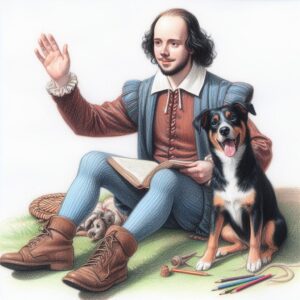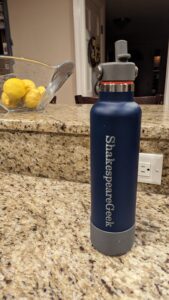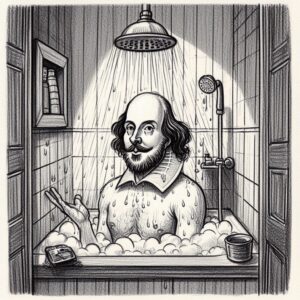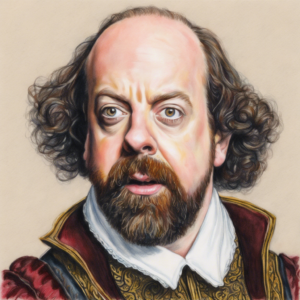Do Shakespeare plays make the perfect rom-com IP?
Thus asks Entertainment Weekly, riding the wave of Shakespeare articles let by the success of Sydney Sweeney’s Anyone But You.

This is what I’ve been saying! So glad to see similar thinking. I’ve written several times that I was pleasantly surprised to find the amount of Shakespeare I did in Sweeney’s movie. It’s still a by-the-numbers romantic comedy that I’m probably a generation too old to enjoy. But when its popularity began to skyrocket, there was an obvious reason.
It’s the Shakespeare, stupid.
We Shakespeare geeks have known this for years. 10 Things I Hate About You remains popular 25 years after its release. And not just because Heath Ledger and Julia Stiles knocked it out of the park. It’s the dialogue and the setting and plot that allowed them to do that. When the remodeling shows on the other TV channels talk about renovating houses, they talk about “good bones.” Shakespeare gives today’s screenwriters exactly the good bones to build stories that are new and old at the same time.
The linked article isn’t just a rehash of the same teen Shakespeare adaptations that my readers already know. It’s an actual interview with the writers of 10 Things, Get Over It, and She’s The Man. I love the idea that executives for Get Over It said, “Put in more Shakespeare.”
Speaking of Teen Adaptations
But wait, maybe you are looking for a list of teen Shakespeare adaptations. I can’t be the only one who still clicks on all of them. You know, just to see if something might be different this time. Will they realize that every adaptation doesn’t have to be a romantic comedy? Does it include Lion King? Is Romeo+Juliet their #1?
I’m happy to report that Paste Magazine completely surprised me. Their list includes neither Lion King nor Romeo + Juliet, no Hamlets, and one movie I didn’t even know about! I’ve really got to catch up on some of these.





